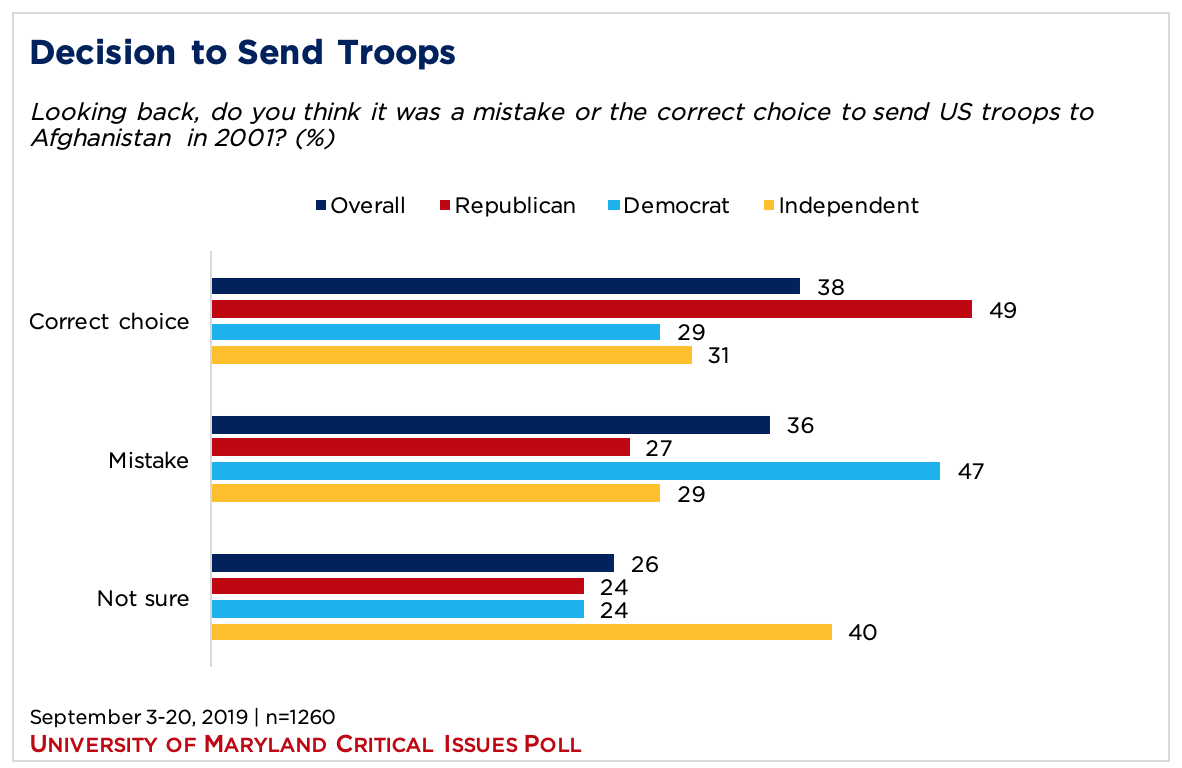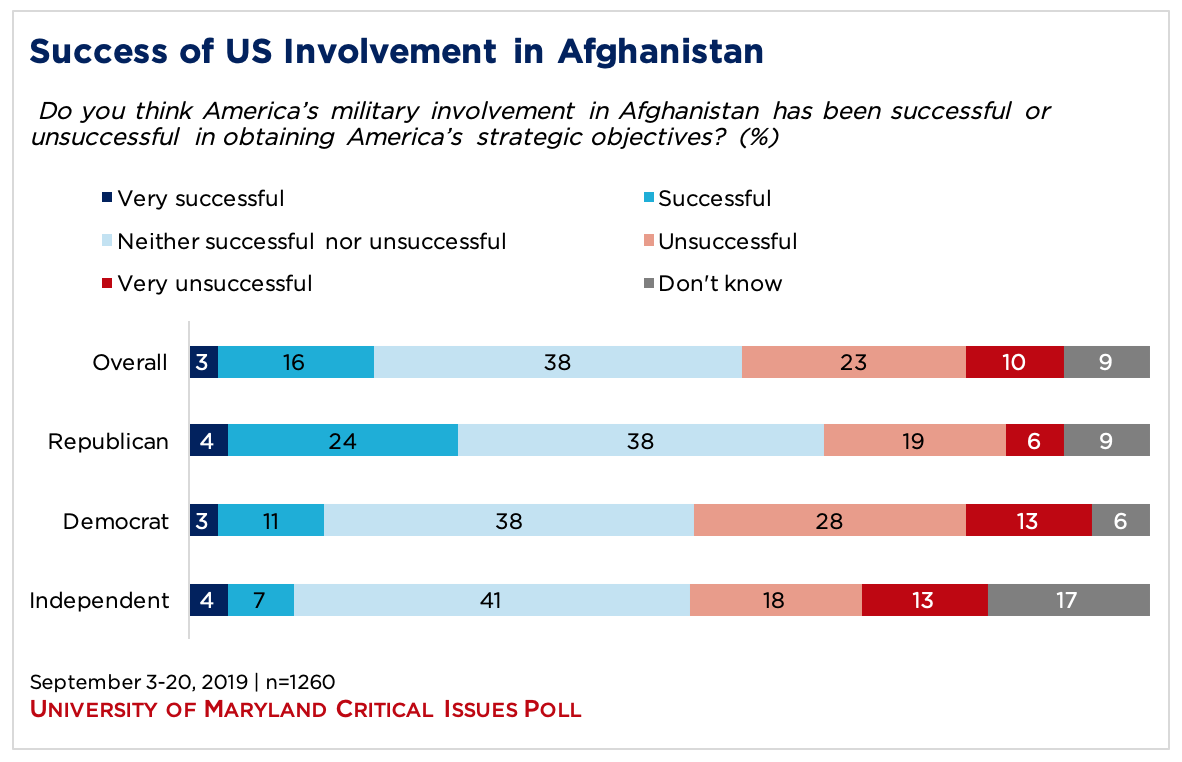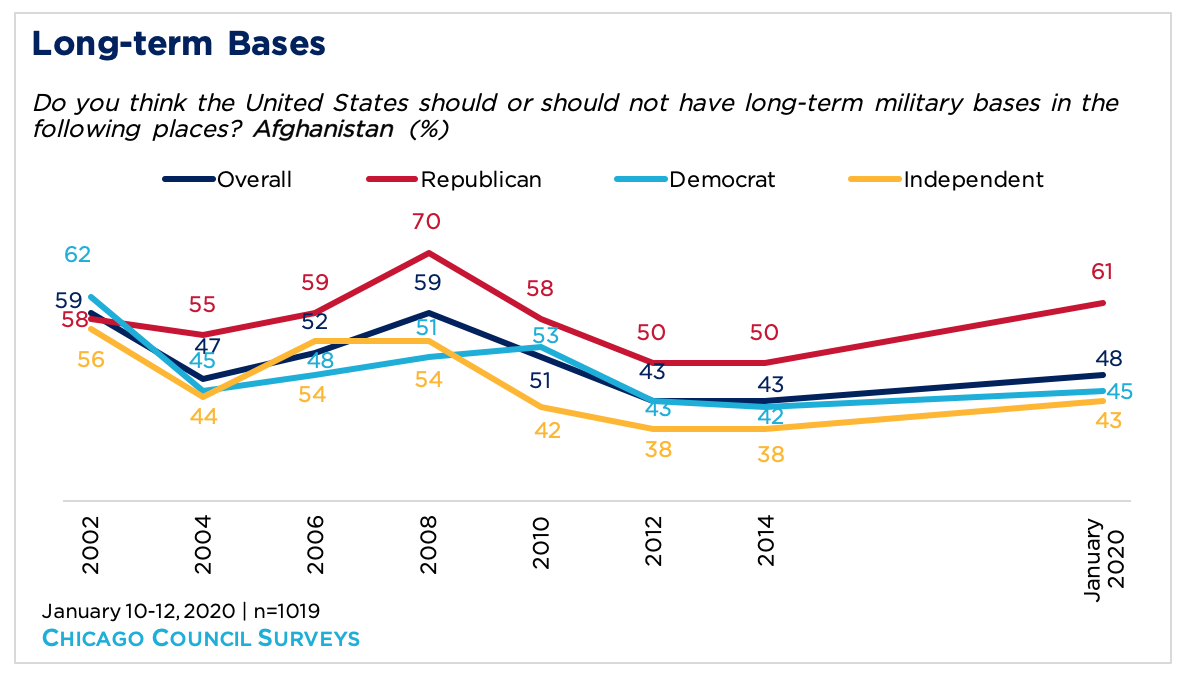Despite Unfavorable Views of the War in Afghanistan, Americans Split on Complete Withdrawal

Although the American public doesn't believe the war with Afghanistan was worth the cost, they also think the US should maintain bases in the country.
February 29 peace deal
On February 29, representatives for the United States and the Taliban signed an agreement that lays the groundwork for ending the 18-year conflict in Afghanistan. Under the deal, all US troops will be withdrawn from Afghanistan in 14 months as long as the Taliban meets certain commitments. These obligations include severing ties with terrorist organizations like Al Qaeda and beginning direct peace negotiations with an Afghan government-led delegation. There are already questions about how committed the Taliban is to abiding by the terms of the deal.
If honored by both parties, the February 29 peace deal would lead to the withdrawal of all US troops from Afghanistan a little over a year from now, fulfilling one of Trump’s key campaign promises and ending the United States’ longest war.
American opinion on US Military involvement
For their part, the American public seems to be of two minds when it comes to US military involvement in Afghanistan – they do not think the war was worth the cost but they also think the United States should maintain bases in the country. According to the Council’s January 2020 survey, two-thirds (65%) say the war has not been worth it, including majorities of self-described Democrats (76%) and Independents (68%). Republicans are divided: 50 percent say the war was worth it, 48 percent it was not. In September 2019, the University of Maryland’s Critical Issues Poll found that Americans are also divided when asked about the United States’ initial decision to send troops to Afghanistan. While 47 percent of Democrats said it was a mistake to send US troops to Afghanistan in 2001, only 27 percent of Republicans said the same.

Although more Republicans than Democrats believe that the war was the correct choice and has been worth it, few supporters of either party view it as a success. According to the same University of Maryland poll, 38 percent of both Republicans and Democrats say US involvement has been “neither successful nor unsuccessful” and 25 percent of Republicans and 41 percent of Democrats say the war was unsuccessful or very unsuccessful. Only 28 percent of Republicans and 14 percent of Democrats say that US military involvement in Afghanistan has been very successful or successful “in obtaining America’s strategic objectives.”

While Americans do not see past US involvement in Afghanistan as successful, they are split on whether the United States should maintain a military presence in the country. Polling from the University of Maryland found 37 percent of Americans support increasing (3%) or maintaining (34%) current levels, and 45 percent backing decreasing (23%) or withdrawing (22%) US troops. In 2019, the Council’s annual survey found that half of Democrats (50%) and six in ten Republicans (61%) believed that US forces in Afghanistan should be increased or maintained.
Americans are similarly supportive of bases in Afghanistan: in January 2020 polling from the Council, 45 percent of Democrats and 61 percent of Republicans said the United States should have long-term military bases in the country. While these numbers don’t indicate overwhelming support for US bases, they do show that some Americans support maintaining a military presence in the country despite their belief that the war in Afghanistan was not worth fighting.
